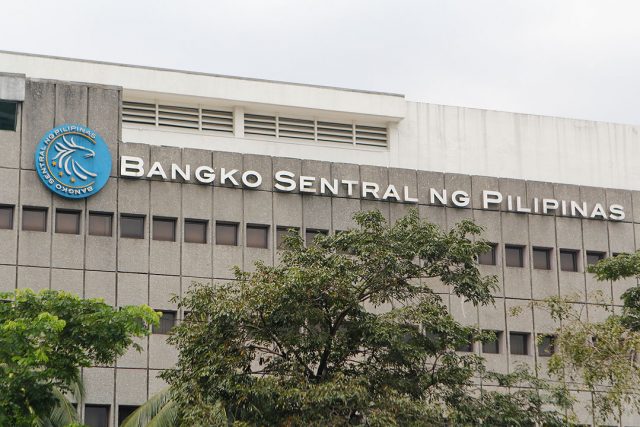MUSIC and podcast streaming play an important role in the auditory experience of millennials and Gen Zs, according to Spotify’s Culture Next Report 2021. And for many of them, the first year of the coronavirus disease 2019 (COVID-19) pandemic saw them searching for a blast from the past.
The report gathered insights and perspectives from Gen Zs (people ages 15 to 25) and millennials (ages 26 to 40) through four Zoom focus groups and 40 in-depth interviews, among other research methods, with more than four dozen respondents in America, Europe, Southeast Asia, Japan, and the United Arab Emirates. A global quantitative survey via Lucid with 9,000 respondents was also conducted in April this year, with 500 respondents per previously mentioned market, as well as Thailand and Malaysia. Findings were additionally grounded in Spotify’s “Streaming Intelligence,” the platform’s first-party, contextual data collection that detects a user’s screen time and audio listening activity (https://ads.spotify.com/en-US/stream-context-guide-everyday-audio-moments/).
In the report, Spotify Chief Content & Advertising Business Officer Dawn Ostroff wrote that insights from Gen Zs and millennials were gathered “to understand the biggest shifts in how both generations are creating, curating, and experiencing culture.”
Among the differences between the two generations that the report found, according to Ms. Ostroff, is that Gen Zs are eager to resume attending real life events, while millennials are more likely to continue attending virtual concerts after the COVID-19 pandemic is over.
Audio emerged as the millennials’ go-to source to connect with family, stay informed, and indulge in “me time,” according to the report. Ms. Ostroff cited the usage of smart speakers in households as one device for entertainment which also gives children a break from screen time. Another finding is that podcast listeners form emotional connections with program hosts.
The report found that nostalgic playlists are a comfort and retreat for listeners, giving them a respite from their daily routine.
Eighty-seven percent of millennials and 85% of Gen Zs in the Philippines said that they use audio — music and podcasts — to reduce their stress levels.
A year into the pandemic, nostalgia reigned in the Philippines: 59% more 1970s love songs and 40% more 1980s hits were streamed in March 2021 compared to March 2020.
Eighty-two percent of Filipino Gen Zs feel “feel more centered and generally happier” when listening to their favorite music daily.
Globally, 68% percent of millennials and Gen Zs “attended” a virtual experience in the last year. Millennials in the Philippines are much more likely than Gen Zs to continue attending virtual concerts after the pandemic is over (51% vs. 42%), since they are cheaper and are more convenient than real-life experiences according to the report.
The report also found that Filipino Gen Zs discover new musical artists through social media (39%), and 15% through an artist they already listen to. Fifty percent of Filipino Gen Z Spotify users said they search for a song on the music streaming app after hearing it on social media.
PODCASTS
Aside from music, Spotify looked into the users’ opinions on podcasts. Among the information gleaned was that 66% of millennials and 58% of Gen Zs believe that a podcaster’s voice can make or break a podcast.
Seventy-four percent of millennials and 69% of Gen Zs agree that podcasts have allowed them to be open to hearing more diverse perspectives from various cultures. Meanwhile, 62% of millennials and 58% of Gen Zs have “sought more content from more diverse creators and podcasts in the last year.”
Podcasts have also been uniquely effective for ads, with 41% of all global listeners saying they trust ads more if they hear them during a podcast, while 81% have taken an action after hearing a podcast ad.
The previous year also gave birth to a new wave of audio creators. Spotify added 76,000 artists to playlists for the first time and users of the streaming service listened to artists that they had never heard before 16 billion times a month. Meanwhile, Spotify’s podcast recording and distribution software Anchor launched over 1 million new podcasts in 2020. Anchor-licensed shows also grew by 210% between March 2020 and March 2021.
Music and podcasts have also allowed listeners to expand their horizons. Seventy-three percent of millennials and 72% of Gen Zs said they have used music as a way to learn about cultures and experiences different from their own; while 65% of millennials and 61% of Gen Zs said they have become part of a global community through their preferred music and podcasts.
In terms of audio device preference, the report found an 84% increase in in-car listening to Spotify globally over the last year.
In the Philippines, there has been an increase in the use of home-based devices to listen to Spotify, including desktop computers (77%), gaming consoles (13%), smart speakers (87%), and TVs (123%).
The full report is available at https://culturenext.byspotify.com/en-PH. — Michelle Anne P. Soliman











